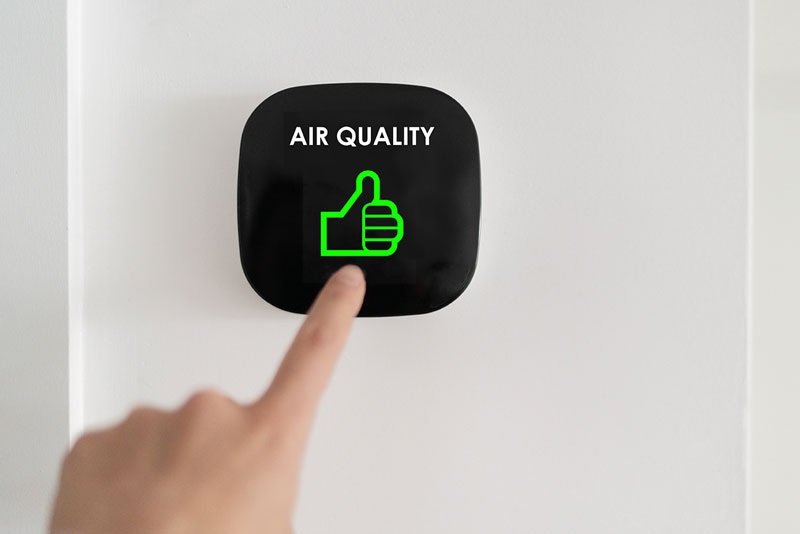As your family spends more quality time indoors during the holiday season, you need to be thinking about the quality of the air inside your home.
When Should I Check My Indoor Air Quality?
As your family spends more time indoors during the holidays, you need to consider the air quality in your home. Your home isn’t getting fresh air to dilute harmful airborne particles. Because of this, your HVAC system will continue to recirculate those toxins. Knowing the signs of poor indoor air quality, how to test and how to improve it can help your home stay safe.
Most Common Signs of Poor Indoor Air Quality
If airborne toxins start to take over your indoor air, there will be some signs that you and your family may notice. These include the following:
- Headaches
- Fatigue
- Shortness of breath
- Irritation and dryness of the eyes, throat, skin, and nose
- Sinus congestion
- Allergy flare-ups
It’s very common to notice these symptoms come on over time. It may be noticing that your allergies are worse while indoors at night. When you first put the signs together, it’s time to run an indoor air quality test.
How to Test for Poor Indoor Air Quality
One of the best ways to check for indoor air quality levels is by using an indoor air meter. This is a handheld device that measures the amount of different types of pollutants. An air quality meter can find levels of carbon monoxide, radon, and other airborne toxins.
How to Boost Indoor Air Quality and Prevent Future Problems
Once you know what airborne toxins are in high amounts in your home, you’ll need to address the source of each. There are some preventative measures to ensure good indoor air quality levels.
First, you want to be changing out your HVAC air filter on a regular basis. Most experts recommend it at least every three months. If you have pets or severe allergies, you should be changing your air filter more often. Apart from changing out your air filter, you should clean your home often. A weekly cleaning routine of vacuuming, dusting, and so forth can help keep airborne toxins at bay.
For older homes, you need to have your ductwork cleaned and sealed by an HVAC professional. Over time, unwanted airborne particles can get stuck inside your ducting. This can cause unwanted leaks to develop that let in dust and other airborne debris. Cleaning and sealing leaks will ensure your ductwork isn’t causing poor air quality.
Call Us Today
If you need help with your indoor air quality test, then it’s time to give us a call. Let our helpful HVAC professionals assist you with all your indoor air quality needs.

